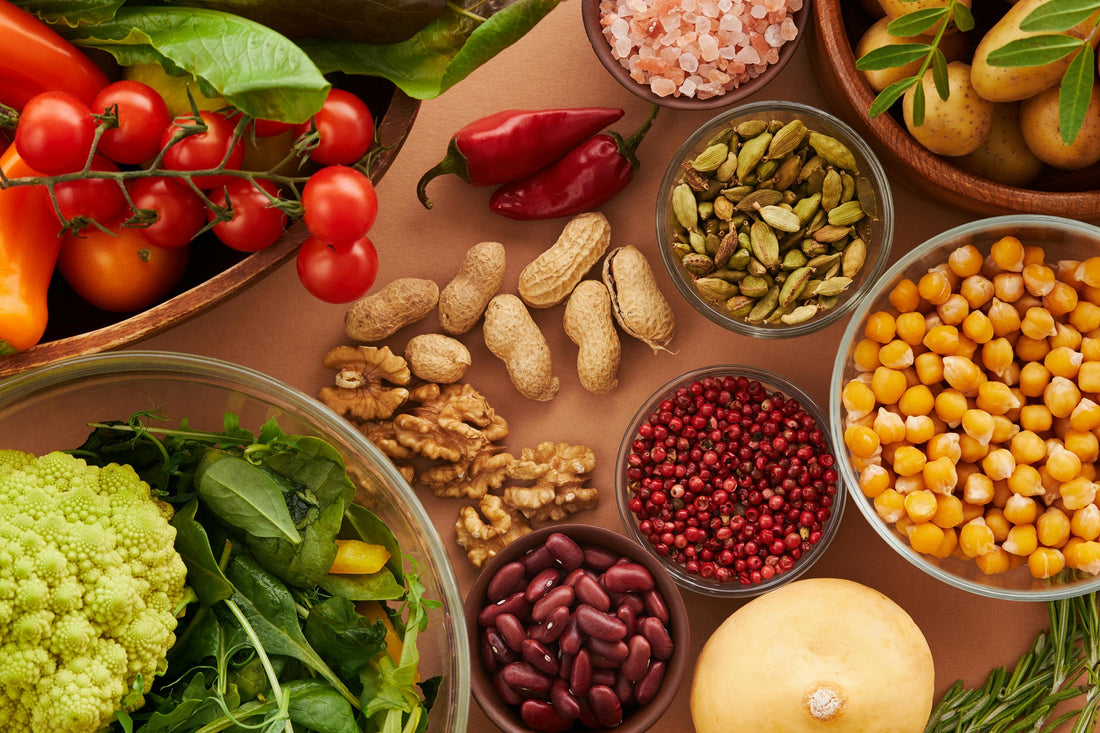
7 budget foods that help to BALANCE your hormones
Next week on week commencing 5th August at Zing Wellbeing we are running a 7 day BUDGET health challenge (we also have dairy free meal plans, menopause meal plans, vegetarian meal plans, variety meal plans and LOTS more coming!)

So in celebration of this we are going to focus on how budget friendly foods can be extremely good for us!
And today we are looking at budget friendly foods that can help to balance our hormones.
And you can join the Zing Wellbeing program. which gives you access to ALL our recipes, meal plans, challenges, coaching and support here
7 budget foods that help to BALANCE your hormones
Having adequate protein and fat are essential to hormone production. Amino acids found in protein can help regulate the release of hormones and assist in regulating appetite.
Most Australians eat plenty of carbs and many people now know about eating enough protein but most of us could use a little more in our daily diets along with a nice hit of good fats.
1. Beans, lentil, legumes, nuts, seeds and tofu
 When the macronutrients are well balanced, you will also stabilise blood sugar levels which will make for a happy hormonal home.
When the macronutrients are well balanced, you will also stabilise blood sugar levels which will make for a happy hormonal home.
Don’t reach straight for meat when you think of protein, look for these vegetable-protein affordable alternatives which still deliver a protein punch.

2. Get that chocolate in
Magnesium is a super-nutrient that supports hundreds of different bodily functions.
It is a calming mineral, helping to reduce levels of adrenaline and cortisol and allowing your body to recover from a stressful event. Magnesium also supports the production of serotonin, the “mood boosting” hormone, and melatonin, the “sleep” hormone. Cacao is one of the richest magnesium foods available so get into the raw dark chocolate!

3. Get more green stuff
Our liver has a massive job, including hormonal metabolism and clearance. Responsible for detoxing everything from the body – you can love your liver by upping your intake of green!
Spinach, broccoli, sprouts, kale, zucchini, lettuce or whatever else your green heart desires. Some extra love can be given by ensuring we are drinking enough water, reducing our toxins and watching our alcohol intake.

4. Include chia seeds everyday
4 times ORAC value than blueberries, 5 times more calcium than milk, 7 times more vitamin c than oranges, 20% protein, 3 times more iron than spinach and twice the potassium of a banana.
You only need a teaspoon or two per day to enjoy the awesome benefits of chia seeds.

5. Fermented Foods
Include sauerkraut on at least 1 meal per day to assist with balancing hormones. Making this at home yourself will cost you no more than a cabbage and a glass jar (and a little time).
The probiotics in fermented foods help to regulate gut health, endocrine function and therefore hormones. Fermented foods help reduce the risk of dysbiosis which may be linked to mood disorders and hormonal imbalance, reducing the risk of depression in peri- and post-menopausal women.

6. Cruciferous Vegetables
Broccoli, cauliflower and Brussels sprouts contain compounds that specifically assist with liver detoxification pathways and help eliminate excess estrogen. Eating these veggies is also linked with lower levels of hormonal cancers such as breast, endometrial and ovarian.
Be sure not to overcook these veggies to ensure you get the most of these special compounds and enhance their ability to support hormonal regulation.

7. Fat, Fat, Fat
Fat intake is essential for hormone production and effective functioning of hormones. It is all about having the right fats and ensuring they equate to around 20% of your daily intake.
Omega-3 fat sources such as oily fish and plant based fats such as avocado oil, olive oil, flaxseed oil, nuts and seeds will help to rebuild cells and stabilise hormones.

Mel is a Medical Herbalist, Naturopath, Nutritionist, Iridologist, and Trainer.
MHlthSc(D&A), BHlthSc(Comp Med), AdvDip WHM, AdvDip Nat, AdvDip NutMed, Dip Iridology
After graduating as a Medical Herbalist top of her class and with a scholarship in 2011, Mel opened her private practice. She has since completed further qualifications in Nutritional Medicine and Naturopathy, as well as a Bachelor Degree of Health Science, in Complimentary Medicine.
In 2023 Mel completed a Master in Health Science in Drug and Alcohol Addiction.
Mel has extensive clinical experience with a range of hormonal conditions and transitions including menopause, PMDD, PMS, PCOS and the changes females with ADHD may experience with hormonal changes.
Join our Zing Wellbeing program here
Important information about coaches – Zing Wellbeing


